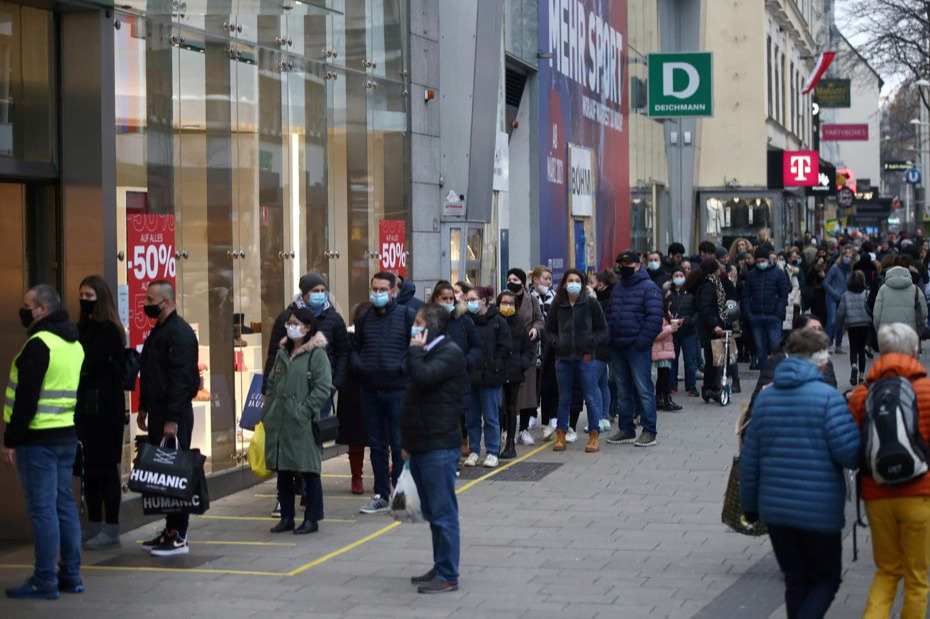
People lined outside a store in Vienna on Saturday ahead of the government's strict lockdown. LISI NIESNER/REUTERS
Vienna, November 9 (RHC)-- Austria, which has a rising coronavirus caseload and is struggling to convince a significant number of people to get vaccinated, has rolled out new physical distancing measures.
Beginning Monday, unvaccinated people are barred from entering restaurants, cafes and hairdressers and will not be able to attend large public events. The restrictions, announced on Friday, come as coronavirus case numbers surpass last year’s record.
About 64 percent of Austria’s 8.9 million-strong population is fully vaccinated against COVID-19, which is in line with the European Union average but one of the lowest rates in Western Europe.
Many Austrians are sceptical about vaccines, as is the far-right Freedom Party, the third-biggest party in parliament. Austria’s national health agency registered 9,899 new confirmed coronavirus cases on Friday, more than its previous record of 9,586 last year.
As of Saturday, the infection rate had risen to 599.6 cases per 100,000 inhabitants, up from 365.9 cases per 100,000 seven days before, according to government figures. “It is simply our responsibility to protect the people in our country,” Chancellor Alexander Schallenberg told reporters on Friday, noting the case numbers and increasingly overwhelmed hospital intensive care units (ICUs).
The government is planning a four-week transition period to encourage the unvaccinated to get shots. During that time, anyone who has received one vaccine dose and has a negative result from a valid RT-PCR test will be allowed to attend events of more than 25 people, and enter hotels, restaurants and cafes.
After four weeks, only those who are fully vaccinated or who have recently recovered from COVID-19 will be permitted to do so. If the situation continues to worsen, further restrictions on unvaccinated people could be on the horizon.
Schallenberg said last month that if the capacity at ICUs fills to one-third, the government would enforce lockdown restrictions for residents who remain unvaccinated. The 52-year-old has called on all Austrians to get vaccinated, saying it is their “moral responsibility”.
Meanwhile, authorities in the capital, Vienna, have announced they will help vaccinate children as young as five against COVID-19 without official EU approval, The New York Times (NYT) reported last week. Under the proposal, doctors will begin administering the use of the shot produced by Pfizer-BioNTech for children below the age of 12 starting from November 12.
Up to 200 children will be able to receive a jab each day in 34 vaccination centres run by city authorities, the NYT reported, citing a municipal spokesman. The spokesman said Vienna was prepared to expand the programme if demand for jabs proved high.
The EU’s medicine regulator has not yet authorized the deployment of any COVID vaccine for those aged below 12.

